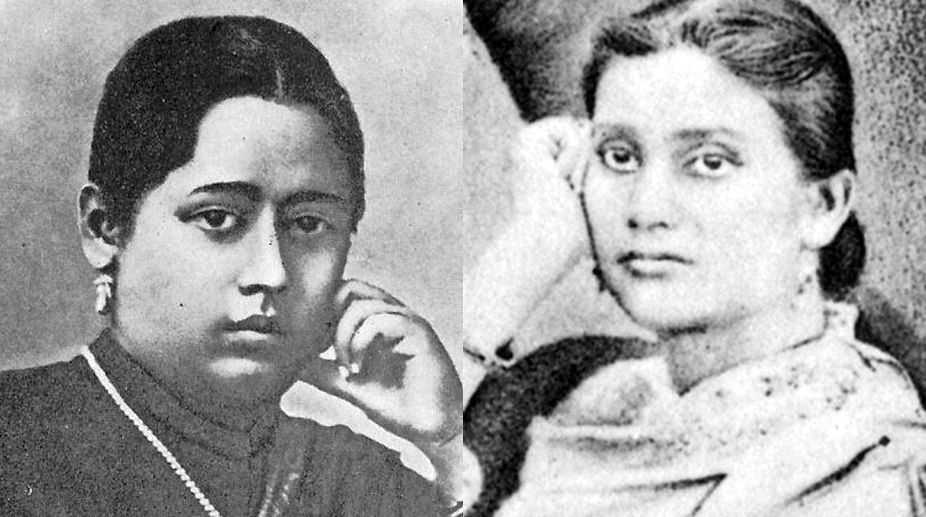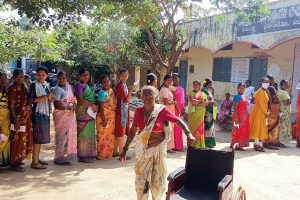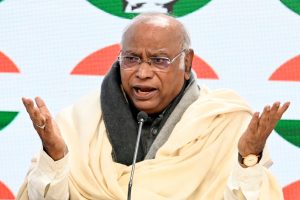It may not be considered an enforced negative attitude if the title of the book under review inspires cynicism among critics; after all the relentless research by scholars attached to various Women’s Studies Centres as well as the work of independent researchers, the prevailing scepticism borne of the reigning patriarchal attitude to all forms of research related to women has refused to die down. However, Chandramukhi Basu A Pioneering Daughter of India, 1860-1944 will evoke a different flavour even among die-hard cynics; for one, it begins with the hint of a long embedded mystery in the hoary portals of that hallowed institution, the University of Calcutta, the hints of the mystery going back more than a hundred years. Secondly, the episode brought to the fore yet another instance of how patriarchal influences, however wrongly construed, had stringently formulated rules of procedure/of recognition in the field of women’s education in the country.
It has long been an accepted belief that there were two ladies who graduated simultaneously from the University of Calcutta in 1883, Kadambini Bose and Chandramukhi Basu, yet the former was accredited with the title of the female who first passed the Entrance examination of the University in 1879! Herein lay the riddle, then how could both graduate the same year? Did the University suppress some facts to favour one over the other, or was there some other complication involved, constructed or involuntary? An academic of contemporary times , Dr Sunanda Ghosh (retired) of Bethune College, (Chandramukhi Basu’s graduation was from there as well) was sufficiently intrigued to take upon herself the task of unravelling the saga surrounding these two illustrious ladies , both of considerable mettle, exhibited more than hundred years ago. The latter went on to become the Principal of Bethune College, the first to offer educational facilities for women whereas her contemporary Kadambini Bose graduated to become the first female medical doctor.
The book, the result of meticulous research by Sunanda becomes a comprehensive narrative not only on the life and times of Chandramukhi Basu but offers some important comments on women’s education; a glimpse into the aristocratic families of Bengal, who displayed intrepid characteristics to venture into the dicey realm of women’s education, is also offered.
Advertisement
North Kolkata has seen considerable Bengali Christian academic activities, for instance by Krishnamohan Banerjee, Brahmabandhab Upadhyay, to name just a few. Chandramukhi’s father similarly came under missionary influence and eventually converted at the age of 16, since then he was involved in Church work. Chandramukhi Basu was born in her home town, Mahanad in Chinsura; they moved to Dehradun subsequently as her father took up teaching responsibilities there. Though not much is mentioned about their denomination it can be presumed they were Protestants since she was enrolled at the Free Church Normal School (now Scottish Church School, a protestant school) from where she passed her First Entrance. Chandramukhi”s enrolment at this institution perhaps was the onset of the series of events that have been referred to as a mystery.
At 16, Sunanda Ghosh”s research finds Chandramukhi seeking admission for the entrance examination of Calcutta University, this application was done under the influence of a missionary David Heron, while at Dehradun. The application created quite a stir within Calcutta’s elite society. Calcutta University Syndicate records indicate the Registrar read the application in detail at its meeting held on 25 November 1876. Unfortunately for Chandramukhi, the expressed statement was “… (A)ccording to the received interpretation of the Regulations for that examination , he was unable to entertain” the girl’s application. Yet empathising with the girl’s desires for higher education he “had arranged for her being examined privately” under the supervision of the Head Master of the Mussourie school, on the understanding that she was not to be considered a registered candidate. The meeting went on to conclude that in the eventuality of her passing the said examination, her name should not appear in the list of passed candidates (42-43).
A very unfortunate decree for a bright young female eager to enter the higher world of academics! Why was this attitude adopted and what were the unhappy repercussions of that pronouncement? The syndicate announced on 27 January 1877 that the candidate had passed in all subjects, not a mean achievement for a girl in those days, but since Chandramukhi was an unregistered candidate her result was not announced. The entire imbroglio rested on the interpretation of the rules governing who could appear for Calcutta University examination. Apparently the words were “any person” (with the requisite qualifications) could appear for the examination, were inclusive enough, but one must remember the time period and the background of the gentlemen involved in the interpretation. Despite a surfeit of learned opinion, the august body, the Syndicate of Calcutta University could not extricate itself from the prevailing notions that “person” in the visible public space could mean one gender only. Rules for women were unwritten, orally transmitted and were applicable as per prevailing community norms. The women simply had no legitimate space in the public sphere, and the interpreters of the rules had no wish to clarify in any other way and break protocol. The fiasco created by the university was however, rectified the very next year; on 27 April 1878 the new rules were declared by the Syndicate “from now on female candidates are allowed to appear for all University examinations.” This decision affected the Chandramukhi legacy to the extent that she lost out to Kadambini Bose, who sat for the University exams under the amended rules in December 1878, approximately 15 months after Chandramukhi, her results were declared in 1879, and she was bestowed with the honour of being the first female to have passed the entrance examination!
The fiasco of Chandramukhi’s misplaced honour was chanced upon by the researcher and she resolved to set it right. It eventually became partly a combined search by some of the faculty members of Bethune College, where Chandramukhi Basu had functioned as the principal. The resolution was to request the current vice-chancellor of Calcutta University to declare Chandramukhi as having cleared her entrance examination in 1876 (p 30) itself. The university authorities took note of the lapse committed by the Syndicate more than a hundred years ago and in the Convocation of 2013, the fault was rectified and posthumously the long due pass certificate was issued.
Such research is invariably commendable, apart from the necessary unearthing and sieving through archives that it involves; it highlights the role of the usually dim figure hovering in the background, the researcher herself and the intentions behind her work. The research seems to be one of love combined with resolute will power.
It is definitely not easy to scour hill and dale to unearth records, memorabilia, artifacts, books, even the grave of a lady long since departed, not once but through repeated travels.
But that is exactly what the team from Bethune College did, they travelled to Dehradun where Chandramukhi had eventually retired; married, and settled down to productive domesticity combined with appreciable social activities, after her continuing ill-health prevented administrative functions at her college.
Their efforts were further augmented by Ghosh who searched innumerable archives to finally compile this slim yet immensely useful volume. A little more attention to the grammar and typos would have been more praiseworthy.
Innumerable myths dot our historical landscape and it is immensely desirable that diligent researchers engage in unearthing the truth from the hoary past to rectify such purposive wrongs.
The reviewer is formerly professor of political science, University of Calcutta
Advertisement










